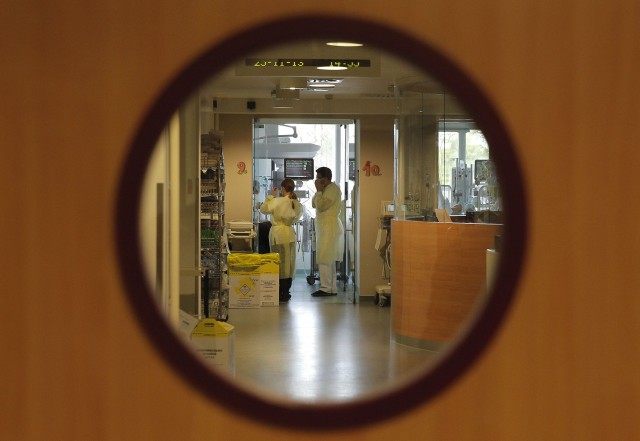BRUSSELS (AP) — Almost one in 20 people in northern Belgium died using euthanasia in 2013, more than doubling the numbers in six years, a study released Tuesday showed.
The universities of Ghent and Brussels found that since euthanasia was legalized in 2002, the acceptance of ending a life at the patient’s request has greatly increased. While a 2007 survey showed only 1.9 percent of deaths from euthanasia in the region, the figure was 4.6 percent in 2013.
“Euthanasia has been increasingly accepted by the patients as a valid option at the end of their life. They are increasingly asking for it,” said Ghent University ethics professor Freddy Mortier. “Physicians themselves are more inclined to comply with the wishes of the patients.”
Euthanasia is legal only in the Netherlands, Belgium and Luxembourg, and its use rate in northern Belgium now tops the Dutch 2010 total of 2.8 percent.
Those requesting euthanasia are mainly highly educated and between 65 and 79, the study found. Terminally-ill cancer patients form the biggest group, although cases in all categories are rising.
“In the vast majority of cases, euthanasia is about people who will die within 2 weeks,” said Mortier. “The standard case remains an intolerably suffering cancer patient.”
Requests citing psychological disorders remain an exception.
The study looking at the 6 million people in the Dutch-speaking Flanders region was published Tuesday in the New England Journal of Medicine.
Belgium last year approved extending the euthanasia law to minors under 18, but they were not part of the 2013 survey.
Mortier was not happy, however, that the ‘hastening of death without explicit request from patients,’ which can happen when a patient slumbers into unconsciousness or has lost the capacity for rational judgment, stood at 1.7 percent of cases in 2013. In the Netherlands, that figure was 0.2 percent.
“Physicians should talk more to their patients and prevent them from coming into situations in which the only option that remains open to the physician is helping them to die without request of the patient himself,” he said.
___
Follow Raf Casert at http://twitter.com/rcasert

COMMENTS
Please let us know if you're having issues with commenting.